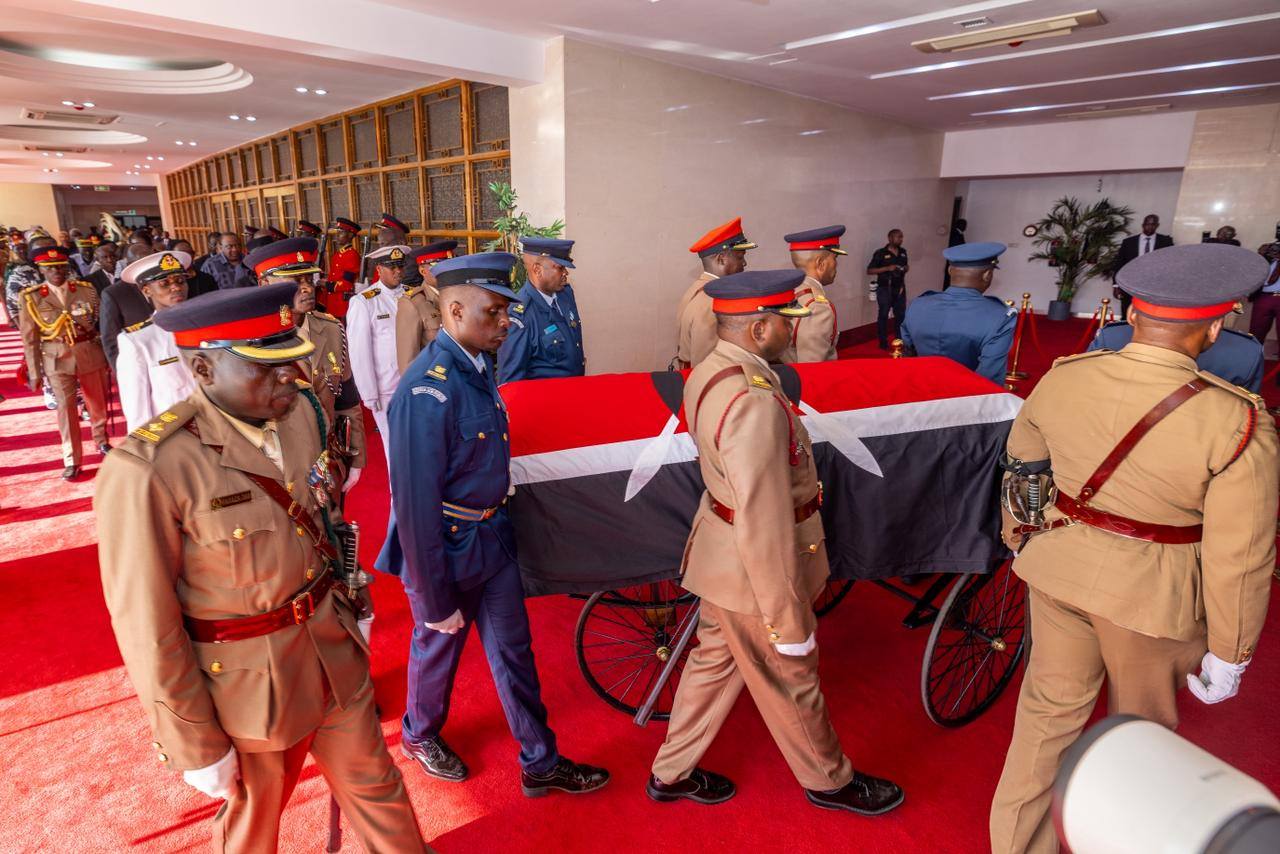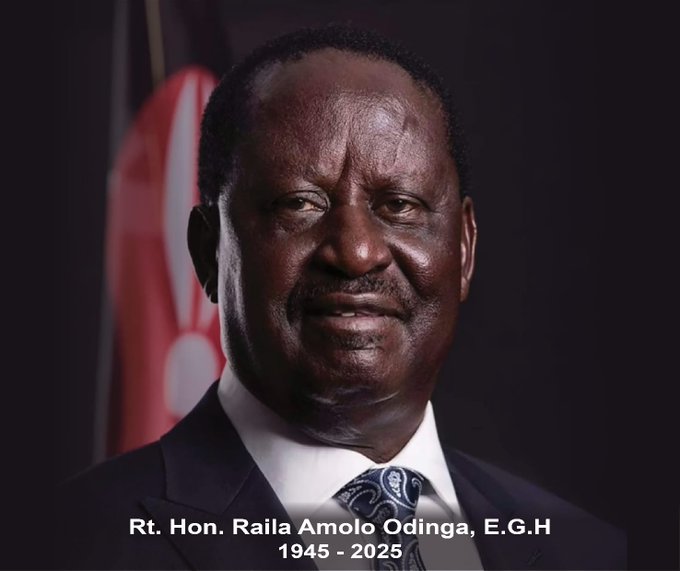In Kenya, a State Funeral is the nation’s highest posthumous honour, offered to citizens whose lives and service have left a lasting mark on the country.
This solemn ceremony celebrates the achievements and contributions of individuals who have shaped Kenya’s history and identity, while also bringing the nation together in a shared moment of reflection and respect.
Although the Constitution does not formally define a State Funeral, the tradition has become an integral part of Kenya’s official protocols. The President, often in consultation with the Cabinet, decides who is granted this honour, with the announcement usually made through a Gazette Notice or official statement.
The planning and execution are coordinated by the Office of the President and the Ministry of Interior and National Administration, following strict government procedures.
State Funerals are typically reserved for individuals of exceptional national importance, including presidents, former presidents, deputy presidents, national heroes, and other prominent figures whose contributions have had enduring impact. Over the years, Kenya has honoured several distinguished personalities:
-
Mzee Jomo Kenyatta (1978) – Kenya’s founding President, recognised for leading the country to independence and establishing the foundations of the republic.
-
Daniel Toroitich arap Moi (2020) – The nation’s second President, who served for 24 years and was accorded a State Funeral at Nyayo Stadium.
-
Emilio Stanley Mwai Kibaki (2022) – Kenya’s third President, celebrated for driving economic growth and expanding infrastructure and education.
-
Michael Kijana Wamalwa (2003) – Then Vice President, remembered for his eloquence, reformist spirit, and role in Kenya’s political transition.
-
Wangari Maathai (2011) – Nobel laureate and environmentalist, honoured for her leadership in democracy and environmental conservation.
-
Lucy Kibaki (2016) – Former First Lady, recognised for her dedication to social welfare and education initiatives.
 The body of the late Prime Minister Raila Odinga is wheeled by military officers at Kasarani ready for public viewing on October 16, 2025.PHOTO/PCS
The body of the late Prime Minister Raila Odinga is wheeled by military officers at Kasarani ready for public viewing on October 16, 2025.PHOTO/PCSFormer Prime Minister Raila Odinga now joins this distinguished list, honoured with a State Funeral as a champion of democracy and a statesman whose career shaped the nation.
A State Funeral in Kenya follows specific traditions. The President declares a period of national mourning, during which flags are flown at half-mast.
The body may lie in state at Parliament Buildings, allowing citizens to pay their respects. The main service is often held at national venues such as Nyayo Stadium, Uhuru Gardens, or in the deceased’s home county, attended by dignitaries from Kenya and abroad.
Military honours are central to the ceremony, including a guard of honour, gun salute, and pallbearers from the Kenya Defence Forces, symbolising the nation’s respect. The entire process is overseen by a State Funeral Committee chaired by the Head of Public Service, ensuring adherence to both state and military protocol.
Beyond its ceremonial aspects, a State Funeral carries deep symbolic significance. It allows the nation to reflect on the values of leadership, service, and patriotism exemplified by the deceased.
The occasion also unites the country in mourning, preserving the memory of Kenya’s leaders and heroes not just for their lives, but for how they served their nation.
